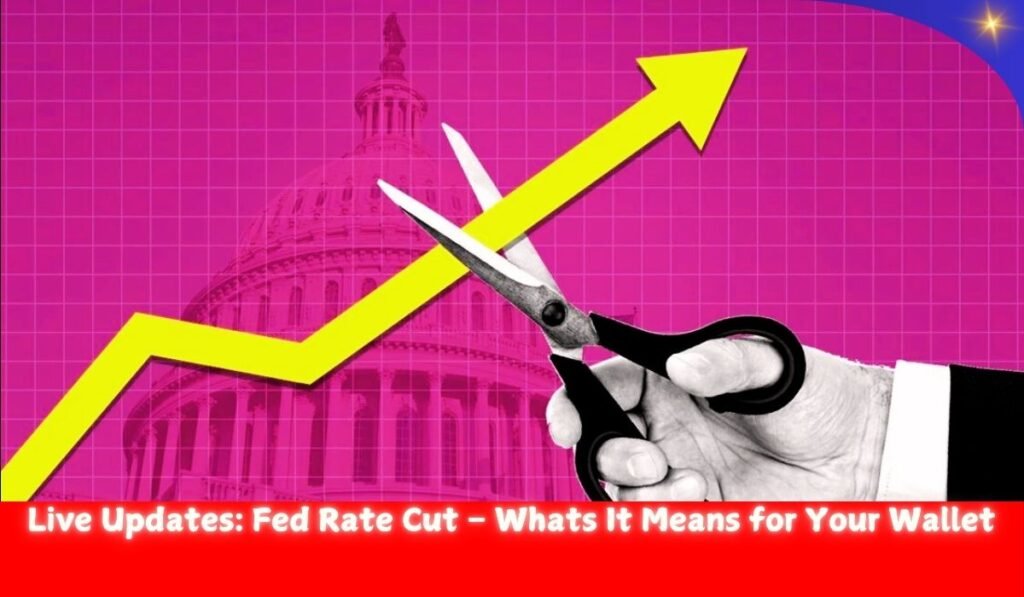Introduction
When the Fed Rate Cut hits the headlines, you recognize it’s regarding quite simply numbers on a screen—it’s regarding your pocketbook, mortgage, and perhaps even your weekend espresso budget. The Federal Reserve’s latest move has sparked a flurry of speculation, and we’re here to interrupt it down while not concealment you in econ jargon.
So, grab your low (or a less expensive different if rates have an effect on your budget), and let’s dive into what this suggests for you and also the U.S. economy.
What Is a Fed Rate Cut?
For the uninitiated, a Fed rate cut suggests that the FRS is lowering the benchmark rate of interest it charges banks. This affects everything from credit cards to home loans, primarily making borrowing cheaper.
Here’s a fast overview:
| Aspect | Before Rate Cut | After Rate Cut |
|---|---|---|
| Mortgage Rates | Higher | Lower |
| Credit Card APR | Higher | Slightly Lower |
| Savings Account APY | Slightly Higher | Lower |
Why Did the Fed Cut Rates?
The Federal Reserve doesn’t simply rouse in the future and choose to slash rates. Here’s what’s doubtless behind the move:
- Economic Growth Concerns:
Recent data may have shown slower growth, prompting the Fed to make borrowing easier to spur spending. - Inflation Control:
If inflation is too low, a rate cut encourages more spending, bringing inflation closer to the target. - Global Factors:
Economic uncertainty abroad, like slowdowns in major trading partners, can also influence the decision.
How It Affects You
- Homeowners:
Thinking of refinancing? Now’s your time to pounce. Lower rates mean you could save hundreds on monthly payments. - Credit Card Users:
While APRs won’t plummet, they might dip enough to make a noticeable difference in outstanding balances. - Savers:
Sorry, but those high-yield savings accounts? They’re not going to yield as high anymore. - Investors:
Lower rates can push the stock market higher, as companies find it cheaper to borrow for expansion.
Key Benefits of the Rate Cut
| Area | Impact |
|---|---|
| Home Buyers | Lower mortgage rates improve affordability. |
| Businesses | Easier access to capital for expansion. |
| Consumers | Cheaper loans and credit access. |
What Experts Are Saying
Economists are divided, as always. Some argue the cut is essential to keep growth on track, while others think it’s unnecessary given the relatively strong state of the economy.
Funny Side Note: One analyst quipped, “It’s like adding more sugar to your coffee when it’s already sweet enough!”
Top 5 Tips to Make the Most of a Fed Rate Cut
- Refinance Smartly:
Look into your mortgage or auto loan terms and see if refinancing saves you money. - Pay Off Debt:
Use lower rates to tackle high-interest debt more aggressively. - Invest Wisely:
Lower rates often boost stocks. Consider diversifying your portfolio. - Check Your Savings Options:
High-yield savings accounts may not be as appealing. Look into other safe investments. - Don’t Overspend:
Just because borrowing is cheaper doesn’t mean you should max out your credit.

Conclusion
The latest Fed rate cut could be a signal that the Fed desires to stay the economy buzzing on. whereas it comes with perks like cheaper loans and potential stock exchange gains, it conjointly has drawbacks, particularly for savers.
As the U.S. navigates these economic waters, one issue is clear: staying hip to and creating sensible monetary choices can assist you create the foremost of this financial policy shift.
So, whether or not you’re eyeing that dream house, paying off student loans, or simply hoping your caffe latte budget stays intact, the Fed’s rate cut has one thing future for everybody.
FAQs
Q: How often does the Fed cut rates?
A: There’s no set schedule. It depends on economic conditions.
Q: Will this help lower my student loan payments?
A: If you have a private loan with variable rates, yes. For federal loans, the impact is minimal.
Q: Will a Fed rate cut mean a recession is coming?
A: Not essentially. Rate cuts ar usually preventative measures to avoid a holdup.
Q: Should I finance my mortgage now?
A: If the numbers are, go for it. sit down with a monetary authority for specifics.



